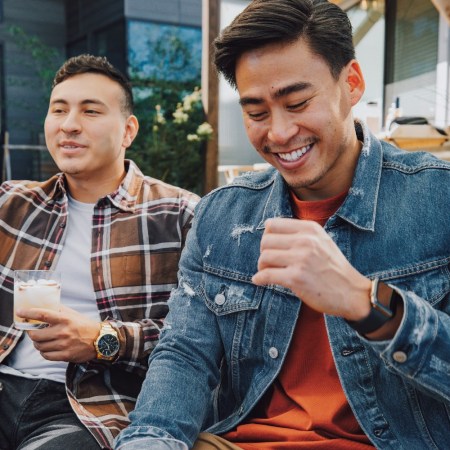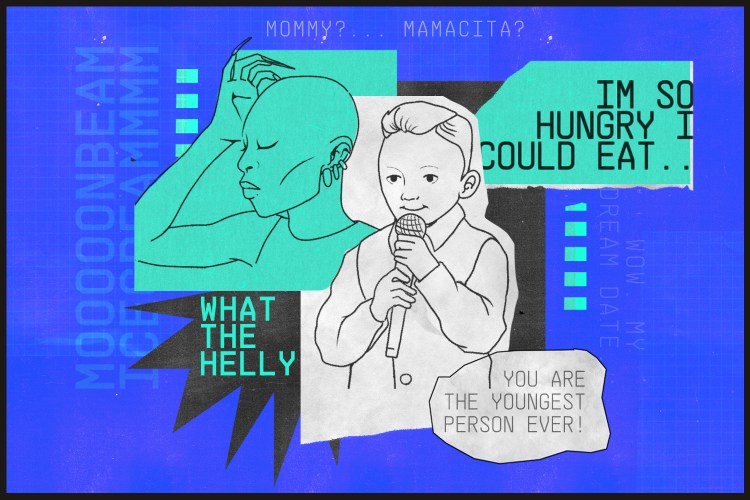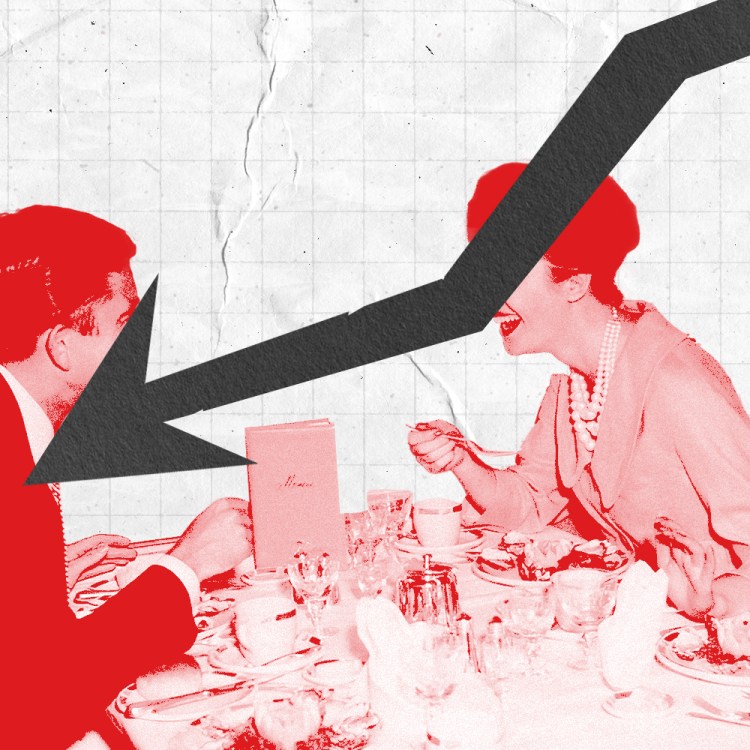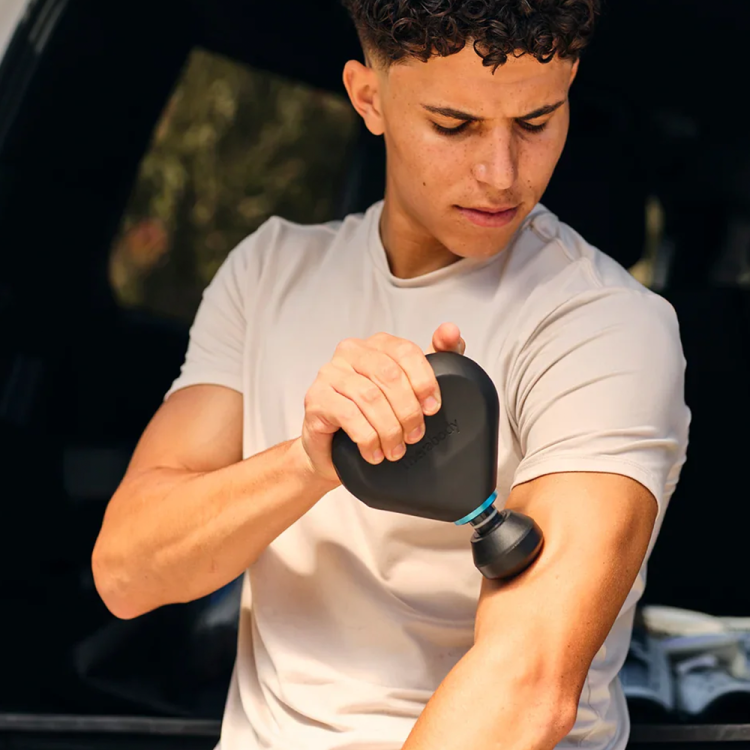With Valentine’s Day coming up, men would be wise to remember that sometimes the most romantic thing a man can do for a woman is support her. And support begins with understanding, especially when it comes to her health.
Many women deal with daily symptoms of painful, annoying, chronic physical conditions, and have long been told they’re too sensitive, or that the pain is in their head or — most malevolently — that men’s needs come first.
What can you do to help? At the very least, edify thyself, with this brief guide to womanhood on the fritz. These are the issues you might not have heard of that could be impacting the women in your life, in the bedroom and beyond.
Before we get into the specifics, a guiding principle: check in with your partner on a regular basis to see how she is feeling physically, including during sex. And if she mentions pain, help her book an appointment with the gynecologist. Not counting hair pulling, biting or other mutually consensual activities, sex should not be painful. Repeat: sex should not be painful.
Important note: none of these are sexually transmitted diseases, which ironically, sometimes are easier for people to discuss openly.
Endometriosis
What it is: Endometriosis was the most searched women’s health topic of 2018, which makes sense, because 1 in 10 women have it. “Endo” is a disease where uterine tissue grows on other parts of the body. This tissue can attach to ovaries, the colon, the kidneys, the lungs or other organs. When menstruation starts, uterine tissue bleeds, but because this tissue is not in the uterus the blood has nowhere to exit the body, so women with endo essentially bleed internally. It hurts — a lot. There’s currently no cure.
How it affects her: On any given day she’s feeling fatigue, nausea, extreme bloating or cramping. She likely has to make big lifestyle changes to handle symptoms, including a restrictive anti-inflammatory diet, regular exercise and a regime of supplements and medications. Endo is the leading cause of infertility in women, so couples trying to conceive my have to try alternative options.
What not to say: “Isn’t it normal to have cramps? Sounds like a bad period.”
Ideal Valentine’s Day date: Make her a delicious endo-diet-approved meal, plug in the heating pad and fire up the Netflix.
Vaginismus
What it is: Vaginismus is when the muscles around the vagina spasm or tighten suddenly (and involuntarily) when something is inserted, causing intense pain. There’s a lot not known about the condition, but it’s typically considered to have a psychological origin. Think bad sexual experience, painful exam or other compounding health issues. Women with a history of a healthy sex life can also suddenly be afflicted.
How it affects her: Because sex in her case is directly correlated with pain, she’s likely frustrated, disappointed and feeling isolated when things turn romantic — especially if she doesn’t have an understanding partner. It can be treated, so she’ll likely need to participate in biofeedback, pelvic floor physical therapy, including the use of vaginal dilators and psychosexual therapy.
What not to say: “Come on, we haven’t had sex in sooo long.”
Ideal Valentine’s Day date: There’s a lot more to sex than intercourse. Manual or oral stimulation is typically still on the table, but get more creative you debonair, modern man. Schedule a Sensate date. P in V is so 2018.
Vulvodynia / Vulvar Vestibulitis
What it is: Vulvodynia is broad term for chronic pain of the vulva that lasts for three months or longer. Pain can be localized or more general, and subclassifications, like Vulvar Vestibulitis, can be made. Vulvodynia typically describes burning, stinging, itchiness and/or rawness around the vulva. Imagine a papercut on the tip of your penis. And now it itches. Feeling supportive yet?
How it affects her: This chronic pain issue will cause her physical, psychological and sexual distress. It’s a bit of a mind f*ck because there’s typically no visual evidence. Many have likened it to phantom limb pain. Lifestyle changes will probably include clothing alterations (pants are the enemy), beauty care updates (scented soaps are a no), pelvic floor physical therapy and lots of interesting pain-management medications (botox shot to the vagina, anyone?).
What not to say: “I don’t see anything. It looks fine.”
Ideal Valentine’s Day date: Buy her a new skirt/stockings combo (stay-up, breathable thigh highs are best), encourage her to ditch the underwear (you both benefit) and head to a massage class for couples at The Love Institute.
PCOS
What it is: PCOS stands for polycystic ovary syndrome, a hormonal disorder that causes irregular menstrual cycles. All women produce cysts as part of ovulation, but for those with PCOS, the cysts aren’t on the typical 28-30 day cycle, so they keep growing, getting larger and larger until they explode. Yes, explosions are painful.
How it affects her: Beyond the bursting cyst pain, there’s general pelvic pain that can pop up at any moment, severe acne and excess body hair growth. She’ll have to manage her diet closely and likely take lots of medications to treat symptoms, and medications always come with side effects. Like endometriosis, it can causes problems with fertility, and there’s currently no cure.
What not to say: “I googled ovulation pain and it said most women don’t feel it.”
Ideal Valentine’s Day date: Take her for couples facials at one of the best spots in your area, according to Goop. (If it’s good enough for Gwyneth Paltrow, it’s good enough, trust.)
Interstitial Cystitis
What it is: IC or Painful Bladder Syndrome affects men and women alike, however it’s more common for women (some estimates say 8 million women in the U.S. have it). Women with this chronic pain syndrome can experience pain with intercourse, and it can be confused for tons of other issues (including some on this list).
How it affects her: Symptoms can come and go or be a bit more constant, but traditionally include chronic pain, urgency (the feeling of needing to urinate RIGHT NOW), frequency (urinating more than you should … up to 60 times a day in severe cases), sleep disruption and depression. It can be incredibly isolating and she likely has to cancel plans or worry about access to a bathroom everywhere she goes.
What not to say: “You’ll be fine, there are bathrooms all over the place. Stop worrying so much.”
Ideal Valentine’s Day date: Set a mood at home with a candle-lit epsom salt bath, complete with essential oil diffuser filled with lavender, chamomile or sage. Take advantage of the bathroom acoustics with some romantic jams. “Alexa, play Sam Smith.”
Main image: Xiaoyi Cheng Xiao Yicheng / EyeEm via Getty
The Charge will help you move better, think clearer and stay in the game longer. Subscribe to our wellness newsletter today.























